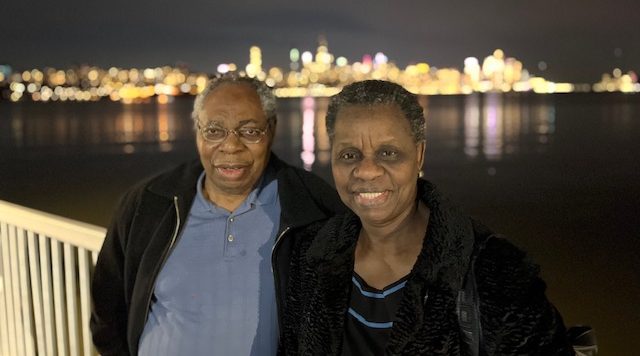Suara Adediran is a distinguished scholar, educator, and family man, known for his passion for chemistry and commitment to education. Originally from Oyo State, Nigeria, he earned both his Bachelor of Science and Ph.D. in Chemistry from the University of Ibadan. His academic career has taken him across the globe, with postdoctoral research fellowships at the University of Alberta in Canada and the University of Kansas in the United States.
Suara spent two decades as a Professor and Head of the Department of Chemistry at the University of Ilorin, where he played a pivotal role in shaping the next generation of scientists. In 1999, he moved to the United States and became a Senior Research Fellow and Visiting Professor at Wesleyan University in Middletown, Connecticut. Additionally, he teaches as an adjunct professor at several universities in Connecticut, contributing greatly to the local academic community.
A Fellow of the Royal Society of Chemistry, Suara has authored 55 research papers and continues to inspire through his intellectual curiosity. Outside of academia, he enjoys soccer, chess, and solving complex problems, and remains deeply committed to mentoring young minds. Above all, he values his family and the strong relationships he has built with colleagues, students, and friends.
Professor Adediran. Let’s begin by talking about your early life. Growing up in Oyo State, Nigeria, what sparked your interest in chemistry?
My fascination with chemistry began during my secondary school days at Ibadan Boys High School. I was fortunate to have excellent teachers who encouraged curiosity. Chemistry, in particular, stood out to me because it explained so much of the natural world. I was captivated by how substances interact and change — it was like unlocking the secrets of life.
You’ve studied and worked across the globe, from Nigeria to Italy, Canada, and the United States. How did these international experiences shape your approach to both teaching and research?
Each place taught me something unique. Studying in Italy, for example, introduced me to biophysics and biochemistry, areas that deepened my understanding of how chemistry is connected to living systems. My postdoctoral work in Canada and the U.S. expanded my worldview and helped me see the importance of collaborative research across borders. I also learned that education, no matter where you are, is the most powerful tool for transforming lives.
You spent two decades as a professor at the University of Ilorin in Nigeria. What was your most rewarding experience during that time?
The most rewarding experience was mentoring students who went on to achieve great things. Many of them came from challenging backgrounds, and seeing them excel in their fields made me incredibly proud. Teaching is about more than just knowledge transfer — it’s about inspiring confidence and curiosity in young minds.
After moving to Middletown, Connecticut, you continued your academic career at Wesleyan University. How did your work there differ from your time in Nigeria?
At Wesleyan, I had more opportunities to engage in cutting-edge research, but the essence of teaching remained the same. The focus was still on helping students think critically and creatively. However, being in the U.S. exposed me to a more interdisciplinary approach, which enriched my own teaching and research.
You have published 55 research papers over your career, an incredible achievement. How do you stay motivated in such a demanding field?
My motivation comes from my love for learning. I have always been deeply curious, and each research project offers new challenges and discoveries. I also view research as my way of contributing to the global scientific community — to leave behind knowledge that can benefit future generations.
You were a Fellow of the Royal Society of Chemistry, a prestigious honor. What does this recognition mean to you personally?
It was an honor, of course, but I see it as recognition of the work my colleagues and I have done collectively. Science is rarely the achievement of one individual; it’s a collaborative effort. This fellowship symbolized that my work resonated with and contributed to the larger scientific dialogue, which was very humbling.
Outside of academia, you’re known to have a deep love for soccer and chess. What do you enjoy about these activities, and how do they relate to your intellectual pursuits?
Both soccer and chess are strategic games. Soccer teaches you about teamwork, quick decision-making, and adaptability — much like working in a lab. Chess, on the other hand, is about foresight and patience, qualities you need in research. These hobbies have helped me balance my life and approach challenges in creative ways.
You were involved in philanthropy, particularly sponsoring education for underprivileged students in Nigeria. Why is giving back through education so important to you?
Education was my gateway to a better life, and I believe it should be accessible to everyone, regardless of their circumstances. Many children in Nigeria are talented but lack the resources to pursue their dreams. If I can help even a handful of students reach their potential, then I feel I’ve made a meaningful impact.
Speaking of impact, you’ve been a devoted husband and father. How have you balanced your professional life with family commitments over the years?
My family has always been my anchor. My wife, Olusola, and I have been partners in everything, from raising our children to navigating life’s challenges. I’ve been fortunate to have a supportive family that understood my professional demands, and I’ve always tried to make time for them, whether it was playing chess with my children or simply enjoying a meal together. It’s all about prioritizing what truly matters.
Lastly, what advice would you give to aspiring scientists and researchers today?
Be curious, be persistent, and never stop learning. The journey can be tough, but the rewards are worth it. Surround yourself with mentors, keep an open mind, and always remember that science is about improving the world. Most importantly, remain humble and dedicated to the pursuit of knowledge, because that’s where true fulfillment lies.

